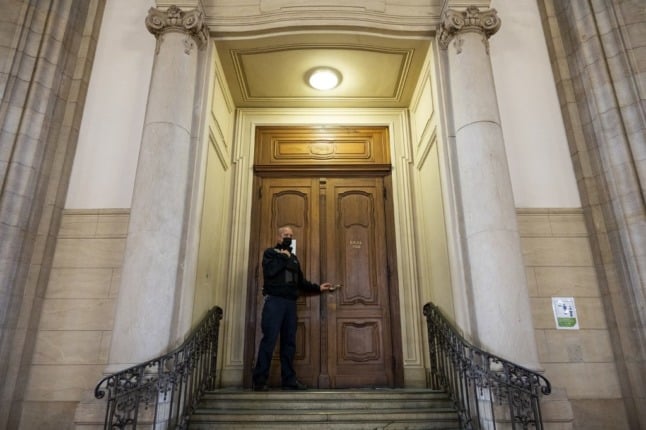Presiding judge Matthias Schertz said Stefan R. carried out the crime “to realise his cannibalistic fantasies”, describing it as “inhuman”.
In 30 years as a judge, “nothing like this has come across my desk before”, he said.
The defendant, who was also convicted of desecrating a corpse, remained silent and expressionless as the verdict was read out in court.
According to prosecutors, Stefan R., 42, made contact with the victim via a dating app before luring him to his home.
Once there, the victim was sedated with drugs before his throat was slit and his genitalia cut off to be eaten.
The corpse was then cut into pieces and scattered across the northeastern Pankow district of Berlin.
The case first came to light in November 2020, after human bones were found in a park in the neighbourhood.
Police identified the remains as those of 43-year-old missing Berliner Stefan T.
Through the victim’s phone records, investigators were led to the murderer’s address, where they found traces of blood, more remains and a set of suspicious work tools.
Stefan R.’s lawyers had argued that the victim died of natural causes in his home, and he had cut up and disposed of the body because he was afraid of people finding out about his homosexuality.
But judge Schertz said this version of events was “unbelievable from start to finish”, noting the “very careful separation of testicles and penis” as evidence of a cannibalistic ritual.
The case is reminiscent of that of Detlev Guenzel, a German ex-police officer convicted of murdering a willing victim he met on a website for cannibalism fetishists and chopping him up in an S&M chamber.
READ ALSO: ‘Cannibal cop’ convicted of ‘killing victim’ in retrial
Guenzel, 58, had cut the body into small pieces in a slaughter chamber he built in his cellar before burying them in his garden. There was no evidence that he ate any part of his victim.
In another case that shocked Germany, Armin Meiwes, nicknamed the “cannibal of Rotenburg”, was sentenced to life in prison in 2006 for killing and partially consuming a willing victim.




 Please whitelist us to continue reading.
Please whitelist us to continue reading.
Member comments